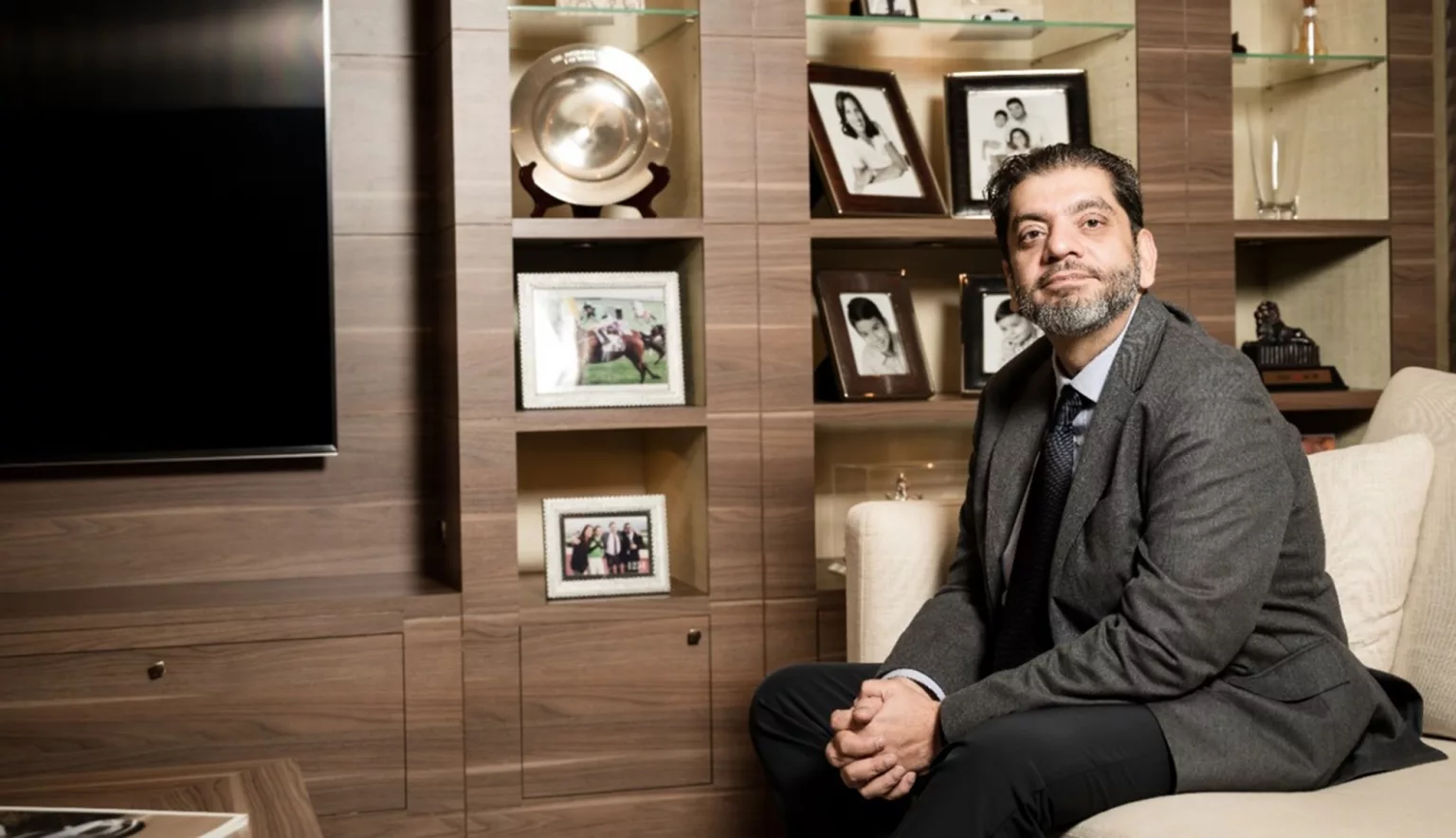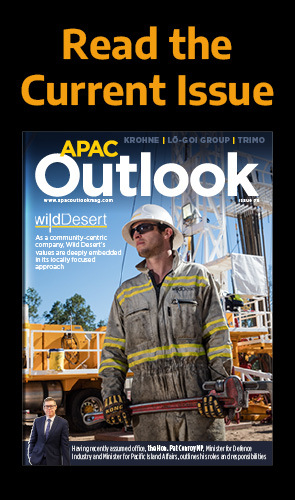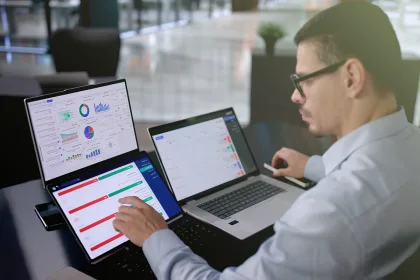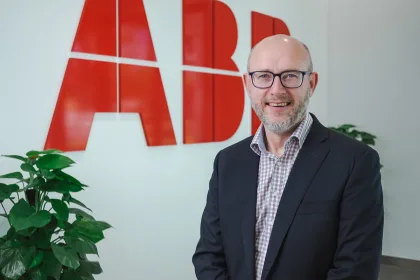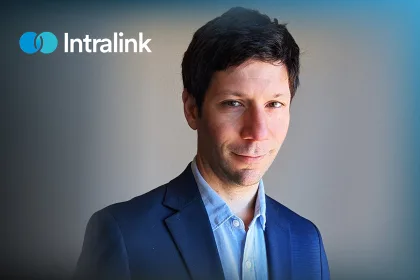Executive Chairman of the Epic Group, Ranjan Mahtani, discusses the components of a leading player in the global fashion and apparel industry.
DESIGNING THE FUTURE
Hong Kong – the clothing capital of Asia. Headquartered at the very centre of this dynamic hub, you will find the Epic Group.
“Epic Group has been dedicated to ever higher standards in value-added, world-class manufacturing of apparel, delivering quality, value, and innovation with unfailing reliability, which is recognised by our customers internationally,” states its Executive Chairman Ranjan Mahtani.
For Mahtani, textiles and apparel have been woven into the fabric of his life since childhood, leading to his esteemed position within the industry today.
“I would not be exaggerating to say that textiles have been embedded into my genes. The story goes long back to when my father used to make premium shirts for the local market. During my childhood, I was his protégé, following him around and learning from him.
“He passed away when I was still a teenager. At the age of 16, I began my professional journey by doing internships in India, Sri Lanka, and Taiwan. Eventually, at age 18, I moved to Hong Kong, which has always been a global apparel sourcing hub,” Mahtani recalls. At the age of 20, Mahtani was transferred to Bangladesh to open a branch office for the company which he grew from scratch to $100 million within a span of four years and gradually evolved into manufacturing while continuing to maintain and enhance the agency business.
Although an established player across international markets with a network of 11 state-of-the-art large scale production units, spanning Africa and Asia, whilst also supplying the largest brands and retailers across the US, Europe, and Canada, the Asian market remains a key component for the Epic Group’s operations.
“Asia has been a market in its own right for many years with demanding and savvy customers. For decades, it has been the manufacturing hub for the global manufacturing industry, with countries like China, Bangladesh, India, Sri Lanka, and Vietnam providing for the West since the 1970s, and still are to this day,” he explains.
With a diversified product range from casual woven garments to bespoke tailored solutions, and an estimated output of 100 million garments a year, Epic pioneers a vision of combining design with product development, speed, efficiency, technology, and constant innovation to fulfil their customers’ demands and ever-changing market trends.
“We have a solid and loyal customer base developed over decades of mutual trust and loyalty. We have a strong footprint in the US, Central America, Europe, Japan, and Canadian markets and we continue to keep exploring, accompanying the growth of developing markets,” he adds.
Indeed, the Group has become the leading producer of performance non-iron pants to the American market and boasts the largest wrinkle-free post-cure facility in Bangladesh.
“Our simple goal is to provide quality products and services that continually delight our customers,” elaborates Mahtani.
SAFEGUARDING SUSTAINABILITY
Arguably the greatest defining aspect of the Epic Group status as a leading manufacturer in modern times is its laudable sustainability efforts and commitments to environmental standards within their facilities, thereby surpassing competitors in terms of industrial excellence.
“We constantly upgrade our existing facilities. We want to adopt less-water usage equipment to wash our garments, we treat our effluents through the most modern treatment facilities, and we diligently control the use of chemicals and reduce energy waste through the proper management of our plants,” Mahtani comments.
“Our new facilities are designed and created with sustainability in mind.”
Across the board, Epic Group demonstrates a commitment to integrating sustainability into its worldwide business practices. Indeed, one of Epic Group’s Bangladesh production facilities – Green Textiles Ltd Unit Three – achieved a coveted ‘Platinum’ rating under the US Green Building Council’s Leadership in Energy and Environment Design (LEED) Programme. All Epic Group buildings boast LEED certification, with gold and silver ratings for the group’s existing facilities, which certify that the premises have met the criteria for the design, construction, operations, and maintenance of eco-friendly buildings.
“We intend to progressively but rapidly reach the lowest discharge standards. We will use up to 50 percent recycled water from our treatment process back in operations. We are also installing solar panels in our Bangladesh facilities, to generate millions of kilowatt-hours (kWh) per year of renewable energy. This will result in reducing our annual CO2 emissions,” Mahtani adds.
At present, the entire Epic Group enterprise is adhering ‘religiously’ to their road map to achieve Higg Index Leadership by 2023, as part of the Sustainable Apparel Coalition.
“By looking at manufacturing through fresh eyes and thinking outside the box, we intend to create zero defect, innovation-driven, and environmentally sustainable manufacturing units.
FACTORIES OF THE FUTURE
“Our micro-factories, located in Dhaka, Bangladesh, and Hawassa, Ethiopia, are agile production facilities with shorter production lines, multi-skilled operators, and advanced technology in terms of equipment and digitalisation. These facilities will be fully operational by 2022 and are under construction as we speak,” Mahtani concludes.
As evidenced by the development of the micro-factories regarding the incorporation of sustainability practices, constant innovation is a staple behind the technology of Epic Group’s manufacturing processes. This guarantees a continual standard of quality and compliance.
“Addressing the current needs of our customers, Epic Group is undertaking transformational initiatives by creating factories of the future, versatile by design and able to answer the new demands of our customers in terms of speed, agility, and smaller runs.
“We are also creating an advanced warehouse, equipped with the latest equipment and technology,” Mahtani comments.
With an impressive roster of clients, supplying more than 80 million garments a year to the likes of Walmart, Levi Strauss, Tesco, Sainsbury’s, Amazon, and Uniqlo. Epic Group prides itself on being a supplier of utmost quality, certified and approved by the world’s largest retailers.
“To us, running state of the art facilities means keeping up with the latest innovations in machinery and processes, providing quality products and services. These services include a cutting-edge design studio to turn your fashion ideas into a tangible, manufacturable reality,” Mahtani explains.
The Epic Group design team produces four collections a year, introducing 100 new fabrics each season. This is guaranteed by strategic investments and a ‘no shortcuts’ approach with stringent company-wide standards.
“To put it simply, we compete against ourselves. We take the sentence, ‘we are our biggest competitor’, to the letter,” he states.
An in-house laboratory performs rigorous garment and textile testing. At Epic Group’s flagship fully air-conditioned 500,000 square foot factory, technological innovation is omnipresent with automation woven into every stage of the manufacturing process.
“Our core philosophy of continuously improving, benchmarking ourselves, and raising our bar is what supports us every day. This mindset is shared by our teams and spread across our operations, from product development, innovation, and manufacturing processes to the highest level of social and environmental standards, and beyond.”
PEOPLE FIRST
For Mahtani, Epic Group’s people are the company’s core assets. He is also a strong believer in teamwork. For him the most important people are the associates working on the floor, as they “keep the needle moving.” Also, he is creating a diverse, smart ‘think tank team’ of executives that can take the company to next level.
As evidenced by the advanced facilities of their flagship factory, Epic Group demonstrates how technology can be beneficial not only to their manufacturing prowess but also for accommodating their workforce, creating a comfortable working environment.
With over 30,000 employees, Mahtani is cognisant of the moral responsibility of suppliers in such a labor-intensive industry. Epic Group pride themselves on high standards of ethical and social compliance and endeavor to nurture a symbiosis of passion and profession amongst their employees.
“We try to promote good and healthy practices,” explains Mahtani. “One example of this is the way we transfer wages to our Associates through electronic banking in a completely automated way, thus making the process transparent and compliant with our values and standards.”
Operating on the central tenets of honesty, integrity, and zero-tolerance, Epic Group promotes education and training to foster internal development.
“Our Human Resources team manages our Epic University, where our people acquire skills and knowledge,” he explains.
“We recently partnered with BRAC, a leading not-for-profit organisation. We are also in the course of training 500 selected female workers who will hopefully become supervisors and managers once their development programme is completed. We believe in promoting internal talents and provide clear career paths for motivated persons, both in our factories and offices.”
The group takes equal pride in its clientele, and number over 200 staff members dedicated to client service, providing design, product, and development to seamlessly coordinate the entire process of manufacture.
“Our solid and loyal customer base has been developed over decades of working relationships built on mutual trust and professional respect,” comments Mahtani.
‘Every Challenge is an Opportunity’
In keeping with Epic Group’s motto, the slump in demand that arose from the coronavirus pandemic of 2019/20 bought an opportunity for reinvention.
Quickly identifying a change in consumer habits introduced by ongoing national lockdowns and other restrictive measures across the world, Epic Group promoted their diversified offering with clothing lines that were more suited to the current market, such as leisure and comfort wear, rather than formal wear and office apparel.
Looking at the needs of the hour, Epic Group also started producing masks at its Ethiopian manufacturing facility under a controlled environment and through automated machinery with minimal human interference.
Above all, Epic Group re-evaluated their current practices within their supply chain in an attempt to combat the challenges of disruption within the retail markets with regards to inventory
“Suppliers are our key partners – they form an integral part of our value-added proposition,” states Mahtani. However, rather than continuing to operate through the traditional ‘long and fragmented’ supply chain that is constantly pushed to find the cheapest cost with clothing production, Epic Group sought to redefine the value chain to create an ecosystem with shared responsibilities. Thereby, the cost of implementing the newfound responsibilities of adapting to the pandemic and new sustainability practices was not shouldered solely by the supplier.
Not allowing such challenges to thwart the group’s expansion efforts and with the implementation of new automated machines, Epic Group endeavors to become a shining example in the new way of working.
With a ceaseless demand coinciding with the growing disposable income of the Asian market and an ambitious worldwide vision with dedicated brick and mortar expansion, Epic Group will continue to clothe the world for years to come.



